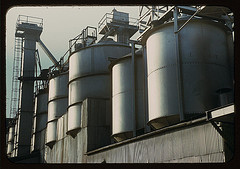
Third Circuit Clarifies Treatment of Future Claims
In Patricia Wright, et al. v. Owens Corning, Case No. 11-2026 (3d Cir. May 18, 2012), the Third Circuit Court of Appeals undertook the challenge of administering unknown future claims in bankruptcy. Future claims are generally known as claims that only become apparent until after a chapter 11 plan is confirmed and the debtor is discharged from all pre-confirmation liabilities. In Owens Corning, the future claims in question were claims related to defective roofing shingles, which had been manufactured by Owens Corning prior to the confirmation of its chapter 11 plan in September 2006.
In addressing whether such future claims had been discharged by Owens Corning‘s confirmed chapter 11 plan, the Third Circuit clarified and expanded its holding in another recent case, JELD-WEN v. Van Brunt (In re Grossman’s Inc.), 607 F.3d 114 (3d Cir. 2010). There, the Third Circuit overruled its long-standing precedent that a “claim” under the Bankruptcy Code did not arise until a cause of action accrued under applicable non-bankruptcy law, i.e., when a claimant possessed the right to payment. See Avellino v. M. Frenville Co. (In re M. Frenville Co.), 744 F.2d 332 (3d Cir. 1984). Under this former, over-turned standard, a claim generally did not arise until a defect in a product manifested itself.
The Grossman’s holding rejected Frenville‘s accrual test and in its place established the rule that a claim arises when an individual is exposed prepetition to a product or other conduct giving rise to an injury, which underlies a right to payment under the Bankruptcy Code. In the Owens Corning case, the Third Circuit expanded its holding in Grossman‘s to include postpetition, pre-confirmation claims against a debtor.
Background
In late 1998 or early 1999, Plaintiff Patricia White hired a contractor, who installed roof shingles manufactured by Owens Corning on White’s home. In 2005, Kevin West similarly hired a contractor to install roof shingles manufactured by Owens Corning on West’s home. In 2009, both White and West discovered leaks in their roofs due to shingles having cracked. In November 2009, after Owens Corning had rejected their claims, White filed a class action against Owens Corning, alleging a number of claims, including fraud, negligence, strict liability and breach of warranty. West later joined as a named plaintiff in this lawsuit.
Meanwhile, back in October 2000, Owens Corning and its affiliates had filed chapter 11 bankruptcy petitions, primarily to restructure their liabilities related to the manufacturing of asbestos-containing products. In the bankruptcy case, all holders of “claims,” as defined in section 101(5) of the Bankruptcy Code, were required to file their proofs of claim by April 15, 2002. This claims bar date was well-publicized in leading newspapers, which notified all potential claimants who held claims that arose prior to the bankruptcy, relating to the sale, manufacture, distribution, or installation of products by Owens Corning (including specifically roofing shingles), to file their proof of claim by the bar date.
In June 2006, Owens Corning filed its chapter 11 plan, which provided for a discharge and release of all claims against Owens Corning that arose before confirmation of the plan. On September 26, 2006, the Bankruptcy Court entered an order confirming Owens Corning’s plan and, again, providing for the discharge of all pre-confirmation claims.
The question before the Third Circuit was whether Owens Corning’s confirmed plan could discharge White and West’s product defect claims.
Analysis
At the time that White and West had filed their class action, the Third Circuit had not yet decided the Grossman’s case. Therefore, under the guiding Frenville opinion (which was later overturned by Grossman’s), the plaintiffs did not have “claims” that had accrued at the time of confirmation and therefore their “future” claims could not be discharged by Owens Corning’s chapter 11 plan.
Overlooking this fact, Owens Corning filed motion for summary judgment in the class action, claiming that the holding in Grossman’s applied retroactively and therefore plaintiffs did hold “claims” at the time of plan confirmation that could be discharged.
The Third Circuit agreed with Owens Corning on this point and applied the holding in Grossman’s retroactively to the plaintiffs “claims.” The Court reiterated that the Grossman’s test requires that a claimant be exposed to a debtor’s product or conduct prepetition and that such claimant recognize, by being exposed to a debtor’s product or conduct, he or she might hold claims even if no damage is evident. Using this test, the Court had no problem finding that Wright, who purchased shingles manufactured in late 1998 or early 1999, held a claim against Owens Corning at the time its plan was confirmed.
Determining West’s claim was more difficult, however, because West had purchased shingles in 2005, after Owens Corning had filed bankruptcy (but before plan confirmation). While the Grossman’s opinion only applied to prepetition claims, the Third Circuit adopted the approach used by the Eleventh Circuit in treating prepetition claims and postpetition, pre-confirmation claims similarly for purposes of determining whether such claims are dischargeable under a plan, pursuant to section 1141(d)(1)(A) of the Code.
The Third Circuit ultimately found that not extending the Grossman‘s test to postpetition, pre-confirmation claims would unnecessarily restrict the Bankruptcy Code’s “expansive treatment” of claims and “would separate artificially individuals who are affected by a debtor’s products or conduct prepetition from those who are affected after the debtor’s filing . . . but before confirmation of a plan.” Accordingly, the Court found that, even though West’s exposure to Owens Corning’s products occurred postpetition, he also had a claim.
Due Process
But the Third Circuit’s analysis did not end with finding that Wright and West had claims pre-confirmation that could theoretically be discharged. Even after the holdings in Grossman‘s and the case sub judice, the Court was still concerned that “[d]ischarge of the claims of future unknown claimants raises questions regarding due process.” The Court therefore examined whether Wright and West had been afforded due process under the law.
The Third Circuit ultimately held that, while Owens Corning’s numerous notices provided during the case were sufficient as to most unknown claimants, the plaintiffs’ situation differed from that of the typical unknown claimant, because at the time plaintiffs received their notices of the bankruptcy, the Frenville opinion was still good law and since the Frenville holding would not have recognized the existence of plaintiffs’ claims (which had not accrued), “[t]he Plaintiffs could only understand that their rights would not be affected in any way by the referenced proceedings, and thus correctly, would not have taken any action.” According to the Court, “due process affords a re-do in these special situations to be sure all claimants have equal rights.”
The Third Circuit concluded that Wright and West had “claims” under the Bankruptcy Code, but because they were misled by Frenville, such claims were not discharged under Owens Corning’s plan.
Further Insight
At first blush, the Court’s opinion could be interpreted as suggesting that due process always prevents the discharge of future claims. In the last footnote of the opinion, however, the Court clarifies that the Owens Corning case presented exceptional circumstances and that the Court “express[ed] no opinion on the broader issue of whether discharging unknown future claims comports with due process.”
The Court further stated that its holding in the case sub judice is not a bright-line rule that all persons with unknown future claims once governed by Frenville could not have been provided due process regardless of the adequacy of notice to those future claimants. By way of example, the Court noted that future claims representatives are often appointed to represent and protect the interests of persons with future unknown claims. These future claims representatives are appointed specifically to address due process concerns relating to the discharge of future claims.






